Originally posted by Spetsnaz
View Post
Announcement
Collapse
Forum Rules (Everyone Must Read!!!)
1] What you CAN NOT post.
You agree, through your use of this service, that you will not use this forum to post any material which is:
- abusive
- vulgar
- hateful
- harassing
- personal attacks
- obscene
You also may not:
- post images that are too large (max is 500*500px)
- post any copyrighted material unless the copyright is owned by you or cited properly.
- post in UPPER CASE, which is considered yelling
- post messages which insult the Armenians, Armenian culture, traditions, etc
- post racist or other intentionally insensitive material that insults or attacks another culture (including Turks)
The Ankap thread is excluded from the strict rules because that place is more relaxed and you can vent and engage in light insults and humor. Notice it's not a blank ticket, but just a place to vent. If you go into the Ankap thread, you enter at your own risk of being clowned on.
What you PROBABLY SHOULD NOT post...
Do not post information that you will regret putting out in public. This site comes up on Google, is cached, and all of that, so be aware of that as you post. Do not ask the staff to go through and delete things that you regret making available on the web for all to see because we will not do it. Think before you post!
2] Use descriptive subject lines & research your post. This means use the SEARCH.
This reduces the chances of double-posting and it also makes it easier for people to see what they do/don't want to read. Using the search function will identify existing threads on the topic so we do not have multiple threads on the same topic.
3] Keep the focus.
Each forum has a focus on a certain topic. Questions outside the scope of a certain forum will either be moved to the appropriate forum, closed, or simply be deleted. Please post your topic in the most appropriate forum. Users that keep doing this will be warned, then banned.
4] Behave as you would in a public location.
This forum is no different than a public place. Behave yourself and act like a decent human being (i.e. be respectful). If you're unable to do so, you're not welcome here and will be made to leave.
5] Respect the authority of moderators/admins.
Public discussions of moderator/admin actions are not allowed on the forum. It is also prohibited to protest moderator actions in titles, avatars, and signatures. If you don't like something that a moderator did, PM or email the moderator and try your best to resolve the problem or difference in private.
6] Promotion of sites or products is not permitted.
Advertisements are not allowed in this venue. No blatant advertising or solicitations of or for business is prohibited.
This includes, but not limited to, personal resumes and links to products or
services with which the poster is affiliated, whether or not a fee is charged
for the product or service. Spamming, in which a user posts the same message repeatedly, is also prohibited.
7] We retain the right to remove any posts and/or Members for any reason, without prior notice.
- PLEASE READ -
Members are welcome to read posts and though we encourage your active participation in the forum, it is not required. If you do participate by posting, however, we expect that on the whole you contribute something to the forum. This means that the bulk of your posts should not be in "fun" threads (e.g. Ankap, Keep & Kill, This or That, etc.). Further, while occasionally it is appropriate to simply voice your agreement or approval, not all of your posts should be of this variety: "LOL Member213!" "I agree."
If it is evident that a member is simply posting for the sake of posting, they will be removed.
8] These Rules & Guidelines may be amended at any time. (last update September 17, 2009)
If you believe an individual is repeatedly breaking the rules, please report to admin/moderator.
You agree, through your use of this service, that you will not use this forum to post any material which is:
- abusive
- vulgar
- hateful
- harassing
- personal attacks
- obscene
You also may not:
- post images that are too large (max is 500*500px)
- post any copyrighted material unless the copyright is owned by you or cited properly.
- post in UPPER CASE, which is considered yelling
- post messages which insult the Armenians, Armenian culture, traditions, etc
- post racist or other intentionally insensitive material that insults or attacks another culture (including Turks)
The Ankap thread is excluded from the strict rules because that place is more relaxed and you can vent and engage in light insults and humor. Notice it's not a blank ticket, but just a place to vent. If you go into the Ankap thread, you enter at your own risk of being clowned on.
What you PROBABLY SHOULD NOT post...
Do not post information that you will regret putting out in public. This site comes up on Google, is cached, and all of that, so be aware of that as you post. Do not ask the staff to go through and delete things that you regret making available on the web for all to see because we will not do it. Think before you post!
2] Use descriptive subject lines & research your post. This means use the SEARCH.
This reduces the chances of double-posting and it also makes it easier for people to see what they do/don't want to read. Using the search function will identify existing threads on the topic so we do not have multiple threads on the same topic.
3] Keep the focus.
Each forum has a focus on a certain topic. Questions outside the scope of a certain forum will either be moved to the appropriate forum, closed, or simply be deleted. Please post your topic in the most appropriate forum. Users that keep doing this will be warned, then banned.
4] Behave as you would in a public location.
This forum is no different than a public place. Behave yourself and act like a decent human being (i.e. be respectful). If you're unable to do so, you're not welcome here and will be made to leave.
5] Respect the authority of moderators/admins.
Public discussions of moderator/admin actions are not allowed on the forum. It is also prohibited to protest moderator actions in titles, avatars, and signatures. If you don't like something that a moderator did, PM or email the moderator and try your best to resolve the problem or difference in private.
6] Promotion of sites or products is not permitted.
Advertisements are not allowed in this venue. No blatant advertising or solicitations of or for business is prohibited.
This includes, but not limited to, personal resumes and links to products or
services with which the poster is affiliated, whether or not a fee is charged
for the product or service. Spamming, in which a user posts the same message repeatedly, is also prohibited.
7] We retain the right to remove any posts and/or Members for any reason, without prior notice.
- PLEASE READ -
Members are welcome to read posts and though we encourage your active participation in the forum, it is not required. If you do participate by posting, however, we expect that on the whole you contribute something to the forum. This means that the bulk of your posts should not be in "fun" threads (e.g. Ankap, Keep & Kill, This or That, etc.). Further, while occasionally it is appropriate to simply voice your agreement or approval, not all of your posts should be of this variety: "LOL Member213!" "I agree."
If it is evident that a member is simply posting for the sake of posting, they will be removed.
8] These Rules & Guidelines may be amended at any time. (last update September 17, 2009)
If you believe an individual is repeatedly breaking the rules, please report to admin/moderator.
See more
See less
Nagorno-Karabagh: Military Balance Between Armenia & Azerbaijan
Collapse
X
-
Armenia’s Foreign Minister Lecture by Foreign Minister Edward Nalbandian delivered a lecture at the Italian Society for International Organization (SIOI).
Ladies and Gentlemen,
I would like to thank the Italian Society for International Organization and its president – good old friend Franco Frattini, for organizing this meeting. I value very much the opportunities of exchanges within the academic circles and expert communities, which give the possibilities not only for presenting our thoughts and views, but also to listen and comprehend. Therefore, I will start with a short introduction and then will encourage a Q&A session, in a more interactive manner.
The modern day cordial bonds between Armenia and Italy have deep historical roots that go all the way back to the Roman Empire and have especially strengthened after first Armenia and then Rome adopted Christianity as a state religion. Last year His Holiness Pope Francis visited Armenia in his words “as a pilgrim to the first among the Nations to receive the Gospel of Jesus”.
Armenian Italian ties flourished in the Middle Ages during active political and economic interactions between Cilician Armenian Kingdom and Genoa, Venice and Pisa. As an echo of those centuries-old close ties the title “King of Armenia” was held till the modern times by the Italian House of Savoy. Armenian Congregation of Mekhitarists, established in 1717 on the island of San Lazzaro in Venice, has long been regarded as one of the Armenian cultural centers. The first ever Armenian published book was printed in Italy in 1512. There are a lot of historic facts testifying to the close ties between our nations. I just mentioned few to give an overall idea. In modern times too, many Armenians have been well known and played prominent roles in the Italian society.
The Armenian Italian relations gained new momentum after the independence of Armenia. This year marks the 25th anniversary of the establishment of diplomatic relations between our countries. During the past quarter of a century we have managed to forge strong partnership in wide array of fields ranging from the high level political dialogue to the economic cooperation, partnership in cultural, academic and many other fields. We have also formed pretty comprehensive legal framework which comprises three dozen legal documents.
Armenia and Italy are jointly investing their efforts for the peace and security in the United Nations Interim Force in Lebanon, as well as in the “Resolute support” mission in Afghanistan. As nations with rich cultural and historical heritage we successfully cooperate in the field of preservation of historical and cultural heritage.
Armenia is very much interested in further strengthening and deepening its ties with Italy. I am in Rome for first meeting of the Armenian-Italian Intergovernmental Commission. Last year during the visit to Armenia of His Excellency Paolo Gentiloni, in his capacity as the Foreign Minister we together agreed on the establishment of this important format to boost our economic relations. It was followed by the business forum. In the course of this visit I also had a bilateral meeting with my colleague, Minister Alfano, Secretary for Relations with States of Holy See Gallagher, as well as members of the Italian Parliament.
The cooperation between Armenia and Italy goes beyond the bilateral framework and encompasses also the multilateral track, most notably the Eastern Partnership and European Neighborhood Policies of the European Union. We are looking forward to sign this fall at the EU Eastern Partnership Summit in Brussels the Comprehensive and Enhanced Partnership Agreement between Armenia and the European Union, which defines the framework for active political dialogue, cooperation in many areas, dynamic trade and economic relations, expanded sectoral cooperation. Once it is signed, Armenia as a member of the Eurasian Economic Union that encompasses 180 million strong market can further contribute as a bridge in utilizing the available opportunities, providing its services and investment tools and as a platform for trade activities between EAEU and EU member states, particularly, Italy.
We are also looking forward to Italy’s upcoming Chairmanship in one of the most important regional Organizations – the OSCE, which we believe should continue to play a vital role in the current turbulent international affairs.
Ladies and Gentlemen,
It is well known that geography shapes political identity. Armenia’s neighborhood – the South Caucasus, is situated between Russia in the North, Turkey and Iran in the West and Southeast respectively and the Middle East further South. For those who follow the international politics only this vague reference is enough to understand the whole complexity of the regional environment.
Armenia enjoys allied relations with Russia, good-neighborly relations with neighboring Georgia and Iran and has no relations with Turkey. If you wish so, I will come back to our ties with these neighbors during the Q&A. Here, I would like to concentrate more on the Nagorno-Karabakh conflict and the prospects of its resolution, which are hampered by Azerbaijan.
Nagorno-Karabakh has never been part of independent Azerbaijan. I would like to refer to an interesting document sent to Italian Foreign Minister Sforza by his diplomatic envoy Mr. Gorrini in December 1920, where he clearly states that Nagorno-Karabakh is a part of the Republic of Armenia. This is only one evidence among many in this regard. However, in 1921 by the unilateral decision of Josef Stalin Nagorno-Karabakh was forcefully annexed to administrative rule of Soviet Azerbaijan as an autonomous region, while its population was 90% Armenian. In 1988 the Armenians of Nagorno-Karabakh which comprised by the time more than 75% of the population started a peaceful movement for self-determination. In 1991 Nagorno-Karabakh through referendum declared its independence. In 1999 the European Parliament through a special resolution confirmed that Nagorno-Karabakh declared its independence in a same manner as other former Soviet Republics.
Azerbaijan responded with massacres, ethnic cleansing and deportation of around 400.000 Armenians. A full-scale war broke out and its hot phase ended in May 1994 when Nagorno-Karabakh, Azerbaijan and Armenia signed a trilateral cease-fire agreement without time limitations.
Azerbaijan over the years has continuously violated the ceasefire and in April 2016 unleashed a four day large-scale aggression against Nagorno-Karabakh. It was accompanied by gross violations of the international humanitarian law, including Daesh style beheadings and other atrocities, in an apparent attempt to terrorize the people of Nagorno-Karabakh. The four-day military offensive in April was the culmination of the policy pursued by Baku during recent years but was not its end. It is obvious that through escalating the situation in the Nagorno-Karabakh conflict zone Azerbaijan tries to shift the public attention from ongoing economic and social difficulties, gross human rights violations and public outrage in Azerbaijan.
Since 1997 the conflict resolution has been mediated by three Co-Chairs of the Minsk Group of the Organization for Security and Cooperation in Europe – Russia, France and the United States. Several times the settlement was close, however, Azerbaijan made steps back at the last moment, most notably in Key West (USA) in 2001 and in Kazan (Russia) in 2011.
During the last years the negotiations are held on the Basic Principles of the Nagorno-Karabakh conflict resolution, the so called Madrid Principles, proposed by OSCE Minsk Group Co-Chair countries. The Presidents of the Co-Chair countries issued five statements outlining that the settlement should be based on three core principles of international law – non use of force or threat of use of force, territorial integrity, equal rights and self-determination of people. They also stated that the future legal status of Nagorno-Karabakh should be determined by legally binding free _expression_ of will of its population.
According to its longstanding position the European Union supports the efforts of the Co-Chairs, including the statements of the Presidents of the Co-Chair countries, that was once again reiterated in the EU Eastern Partnership Summit Declaration adopted in Riga.
The Co-Chairs proposed the civilized way of solving the issue through mutual compromises. However, Azerbaijan, here again has adopted a maximalist, uncompromising stance in an “either our way or no way” manner and openly threatens with new hostilities taking the negotiation process as a hostage, blackmailing and continuing constant profanation of the Co-Chairs.
Azerbaijan does everything to derail the agreements reached on the level of presidents on the expansion of the team of the personal representative of the OSCE Chairman-in-Office, which is currently the only international presence on the ground in the conflict zone, as well as creation of the mechanism for investigation of the ceasefire violations. Apparently, Azerbaijan wants to keep its hands free from the international scrutiny over its continuous non-compliance. However, even in the absence of the strong monitoring mechanisms it is clear who stands behind the breaches and the Co-Chairs have named Azerbaijan as the initiator of the ceasefire violations.
Given the defiant attitude of Azerbaijan towards international efforts a time has come for the international community for more tangible steps in order to curb Baku’s’ provocative and destructive policy.
There is no alternative to the negotiations and Armenia will continue its efforts together with the Co-Chairs aimed at exclusively peaceful resolution of the conflict.
Ladies and Gentlemen,
I would like to share our views on the situation in the Middle East. The recent deadly tragic attacks in London, in other European cities and elsewhere vividly demonstrate that this phenomena is not just limited to the Middle East. However, it is our conviction that eliminating this scourge first and foremost requires eradication of its breeding ground and the root causes.
Armenia is deeply concerned over the evolving situation in our immediate neighborhood in Iraq and Syria, in particular, where our nation historically has a significant presence. On numerous occasions Armenia has condemned the crimes committed by Daesh and other terrorist groups, which threaten the people of the region and beyond. The war in Syria has a devastating impact on its civilian population, national and religious, including Christian minorities who face existential threats due to identity based crimes perpetrated by terrorists and foreign fighters.
The violence has not bypassed Syrian Armenians. Many of them were obliged to abandon their places of residence. From Syria alone more than 22 thousand refugees found shelter in Armenia, making our country the third largest recipient of Syrian refugees in Europe on per capita basis. Armenia makes its utmost to address the issues of Syrian refugees. We have also tried to reach out to the people who need assistance in Syria continuously dispatching humanitarian relief that were not limited to Syrian Armenians. As we speak here today another airplane with humanitarian aid from Armenia is reaching Syrian people.
In terms of international efforts, we believe that it is not possible to reach an agreement on Syria without all-inclusive political process that will take into account the interests of all Syrian fractions, with the exception of terrorist groups. Conditions should be secured to allow the people of Syria to express their position on the future of the country in a more safe environment. The settlement should take into account the particular needs of most vulnerable groups, like ethnic and religious minorities. Efforts to protect and rehabilitate victimized communities should be supported irrespective of political and religious differences.
Ladies and Gentlemen,
Next year we will mark the 70th anniversary of the adoption of the Genocide Convention. 70 years passed, unfortunately, the world is not immune from this evil. The actions of terrorists against ethnic and religious groups in the Middle East vividly indicate the relevance of the Convention. As a nation that passed through the horrors of Genocide Armenians feel moral obligation in contributing to the international efforts for prevention of crimes against humanity. In 2015, on the 100th year of the Armenian Genocide, due to the efforts of the Armenian diplomacy the Human Rights Council passed a unanimous Resolution on the Genocide Prevention while again on our initiative the UN General Assembly assigned December 9th as a commemoration day for the victims of Genocides.
In 2001 at the Memorial of the Victims of the Armenian Genocide in Yerevan His Holiness John Paul (the) II during his prayer for those who perished underlined that in 1915 His Holiness Pope Benedict XV vehemently protested against the annihilation of the Armenian nation. One hundred years later during the Armenian Genocide commemoration mass in Vatican His Holiness Pope Francis said “Concealing or denying evil is like allowing a wound to keep bleeding without bandaging it”.
Ladies and Gentlemen,
Certainly, we are not free to choose our neighborhood, but every and each state has an obligation to follow certain set of universal principles and norms. Armenia is fully committed to contribute to international peace, to the good-neighbourly relations, the world free of dividing lines, conflicts, guided by the principles of equality, partnership and cooperation.
Thank you.
http://www.armradio.am/en/2017/06/08/firsthand-review-of-armenias-foreign-policy-priorities-and-challenges-by-fm-nalbandian/
Hayastan or Bust.
Comment
-
Azerbaijan opens fire towards Armenia villages 14:41, 09.06.2017
YEREVAN. – The Azerbaijan armed forces on Thursday fired shots toward Baghanis, Voskepar, and Koti border villages in Tavush Province of Armenia, from 9pm to 10pm.
Artsrun Hovhannisyan, spokesperson of the minister of defense of Armenia, told Armenian News-NEWS.am that the Armenian armed forces suffered no losses as a result of this shooting.
“We have no type of loss at specific positions, in connection with the troops,” he said.
Hovhannisyan added that the adversary fired several times in the direction of various communities of Tavush, primarily towards military positions, and also used large-caliber rifles.
To note, however, the roofs of several houses in the aforesaid villages sustained minor damages in the shooting.
https://news.am/eng/news/394558.html
Hayastan or Bust.
Comment



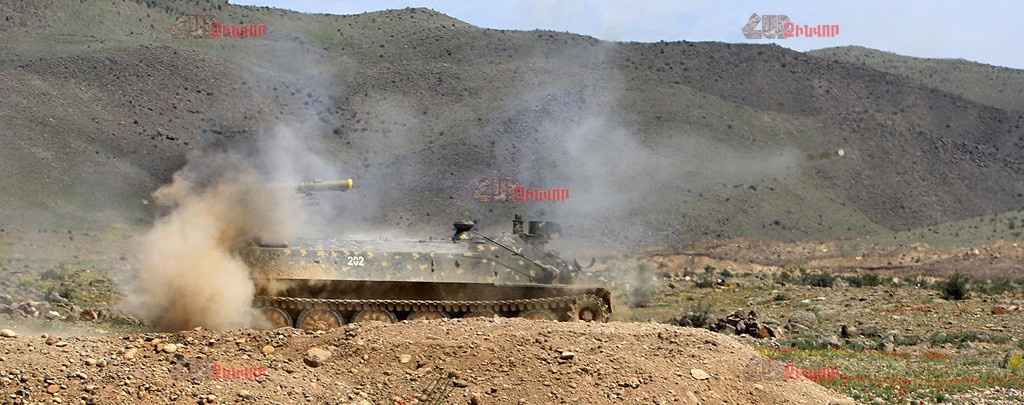
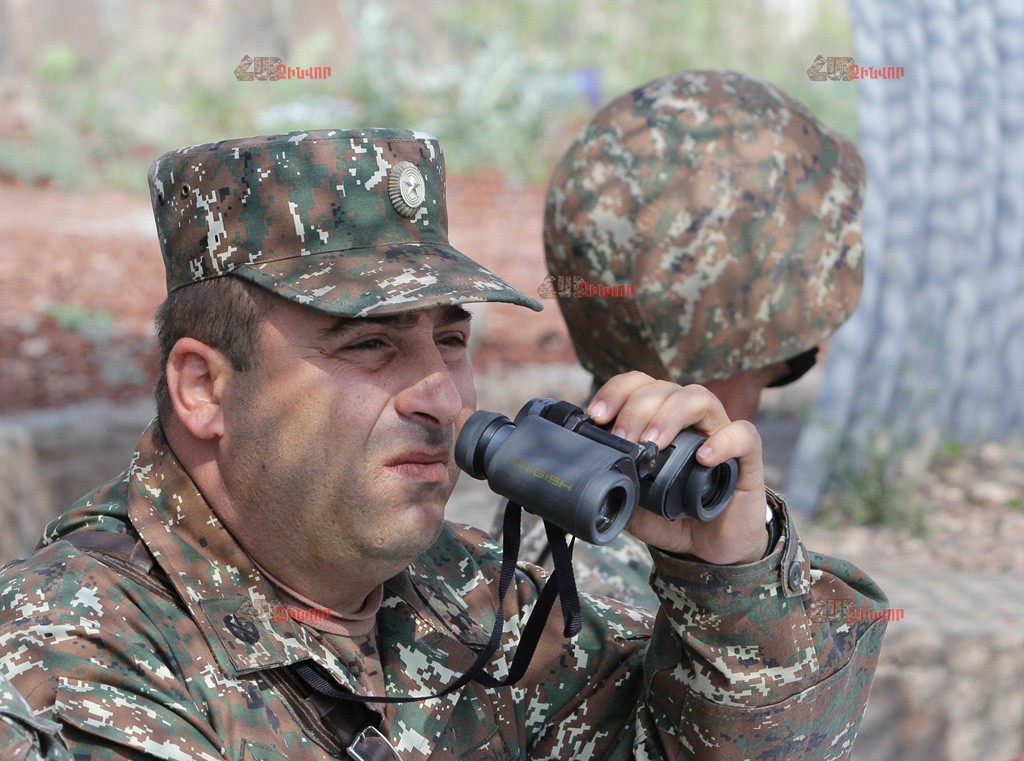
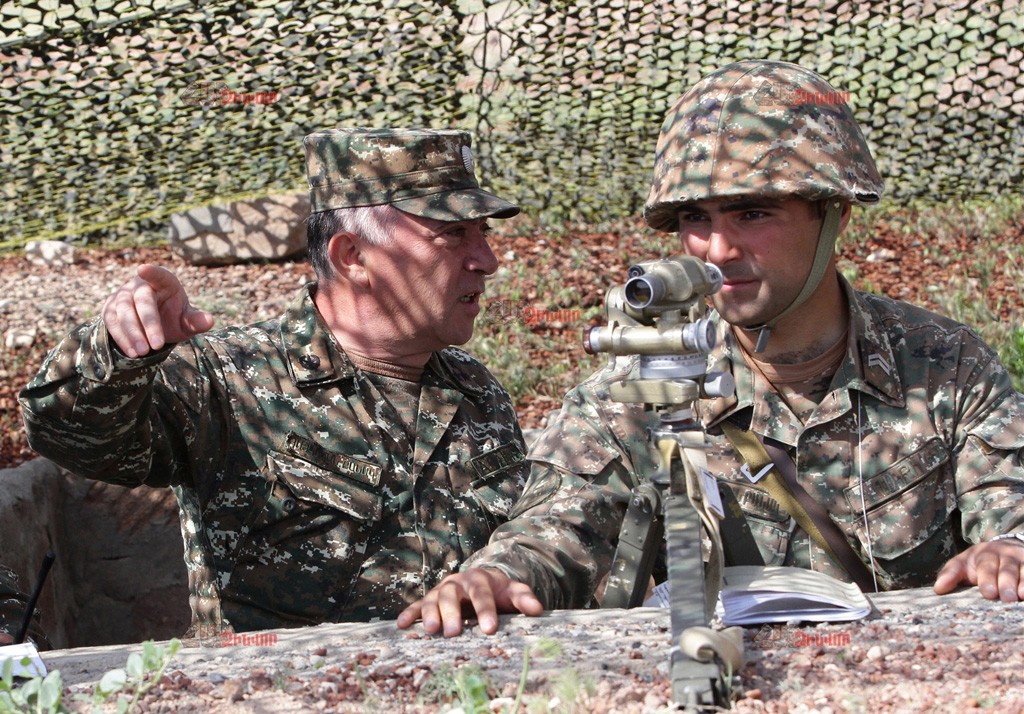
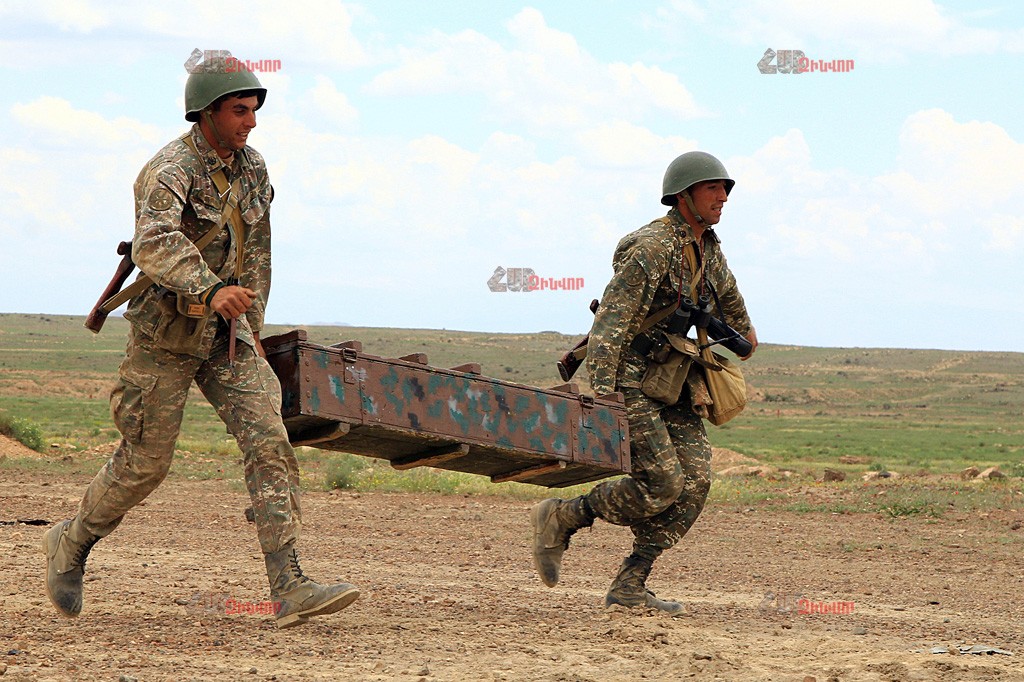
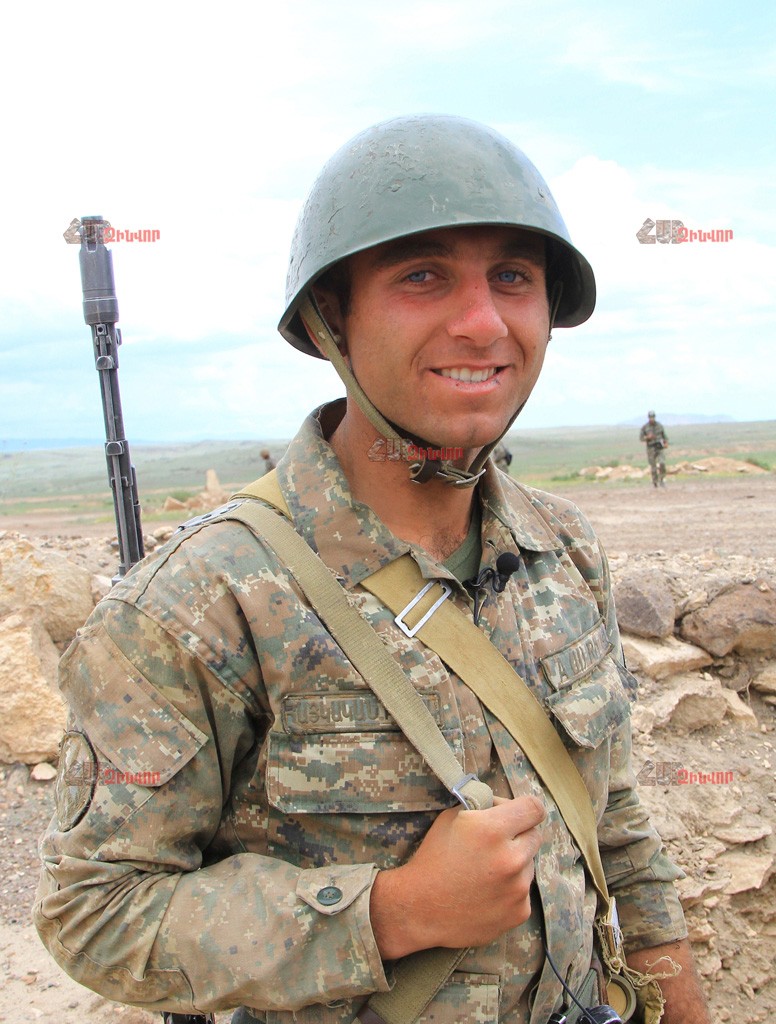



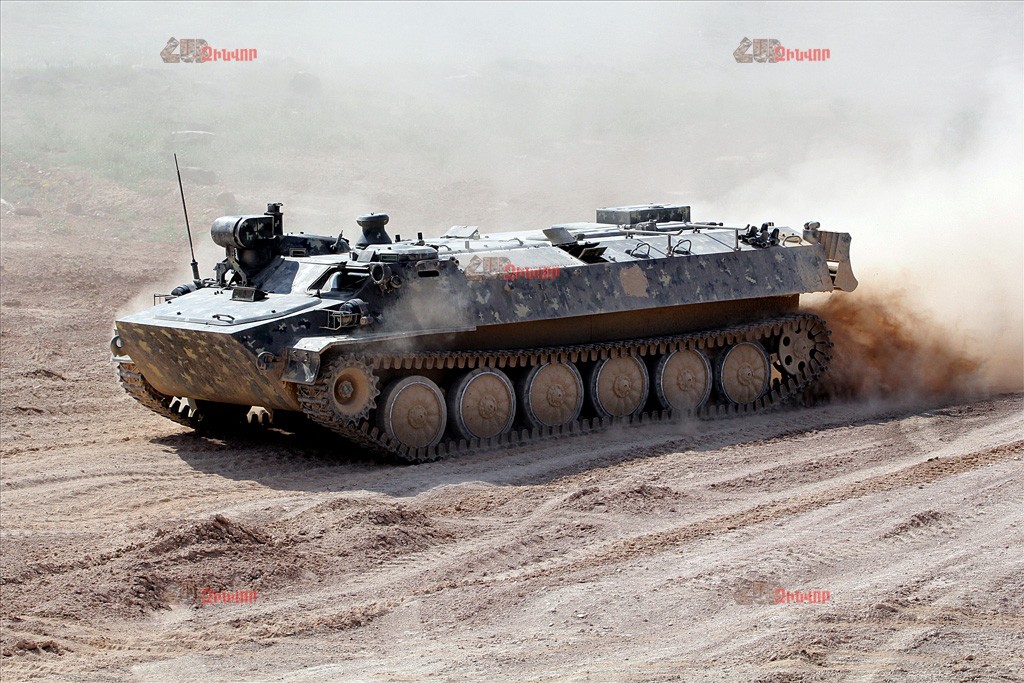
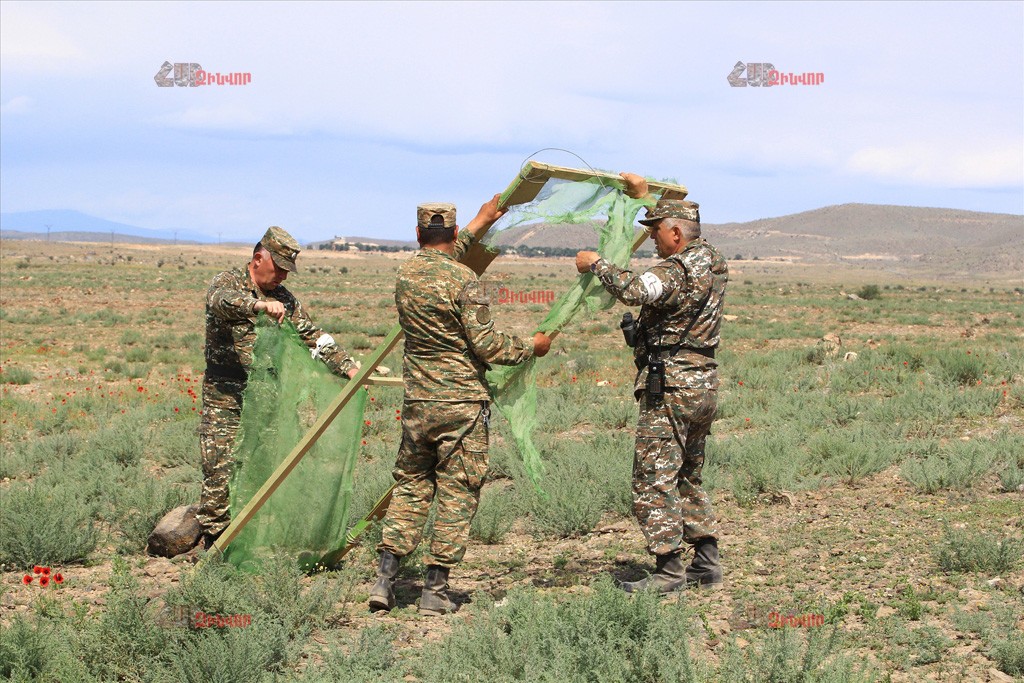
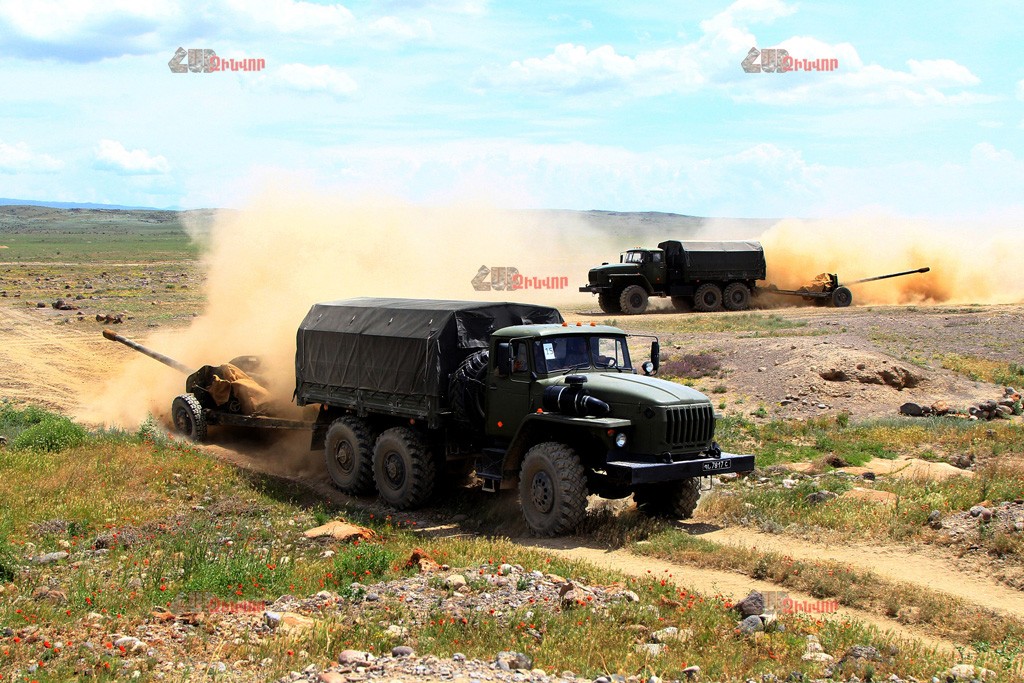
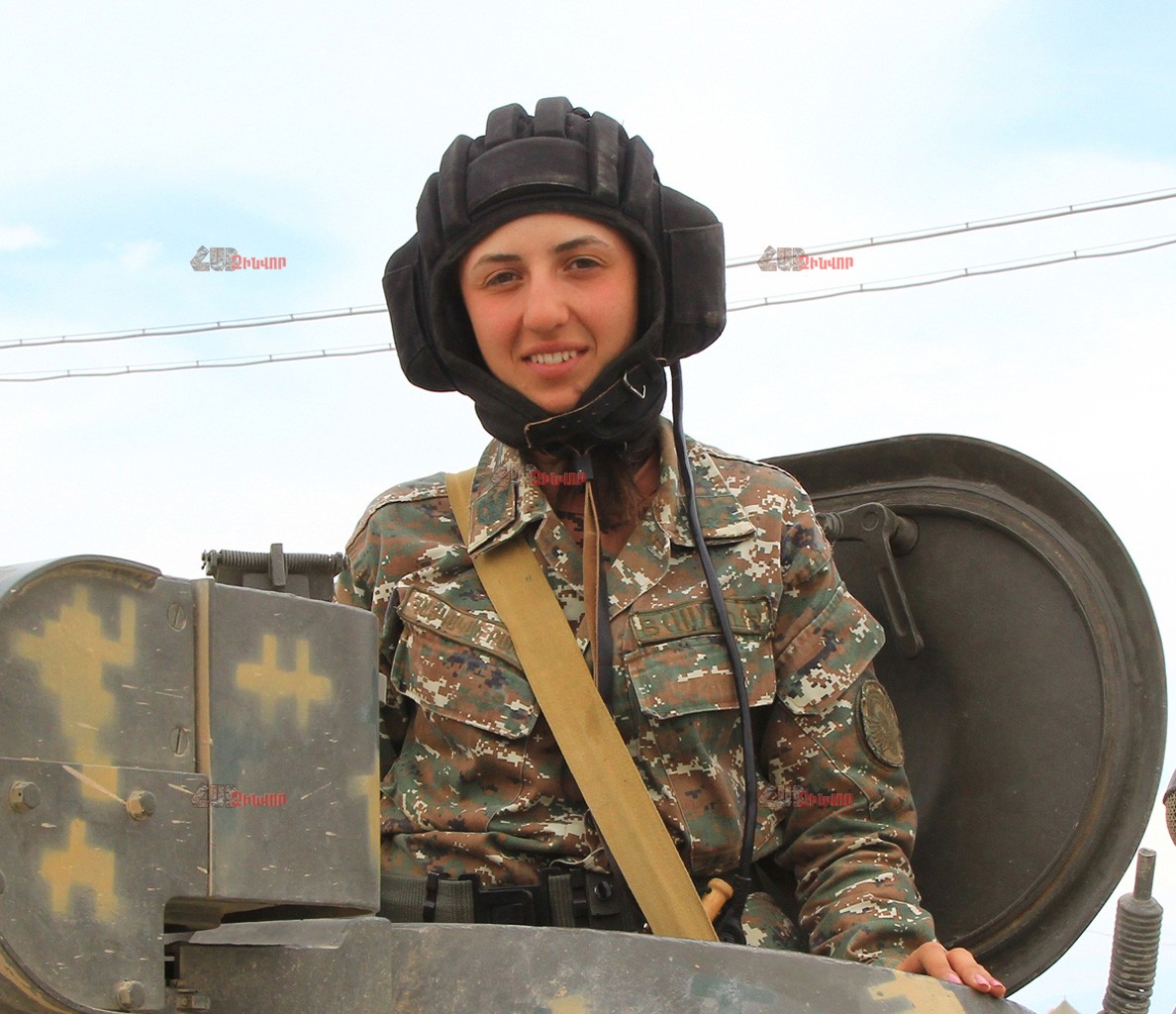
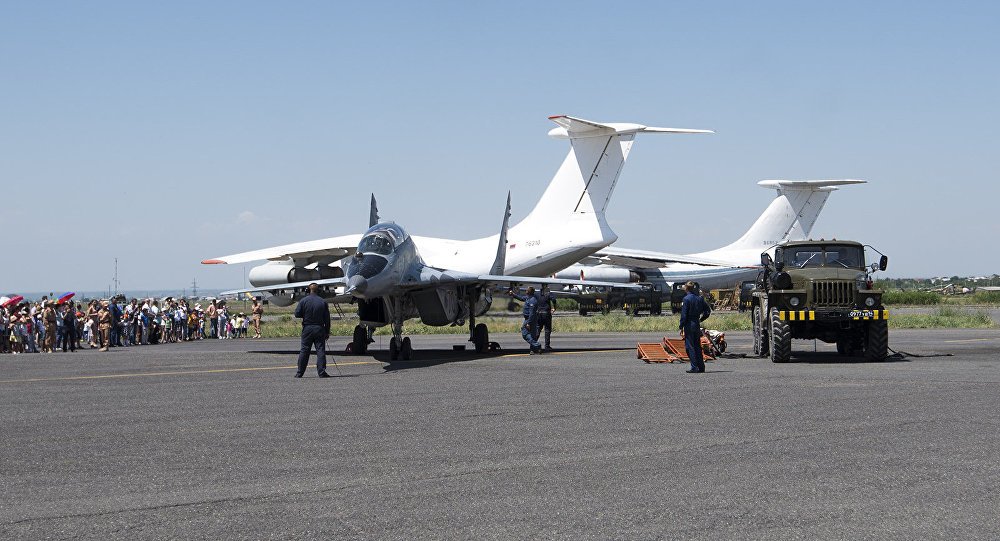
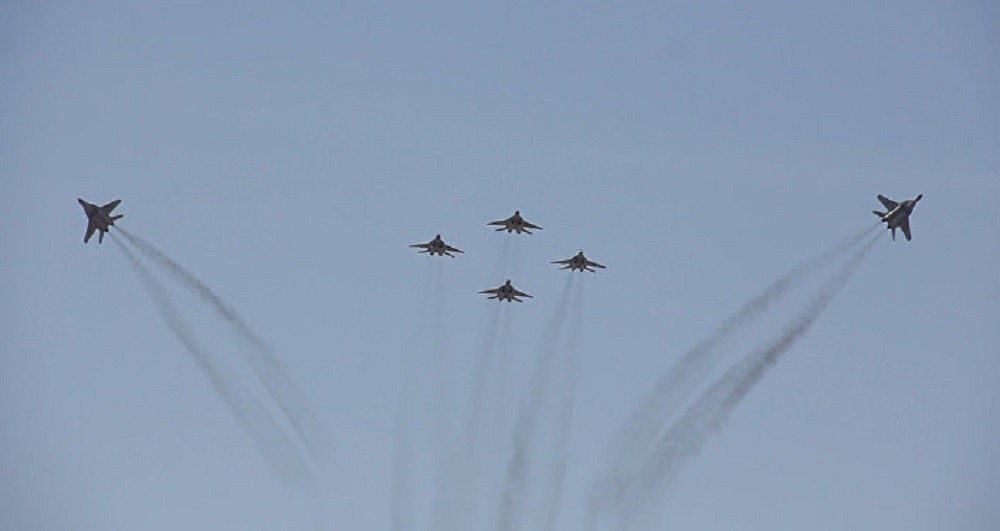
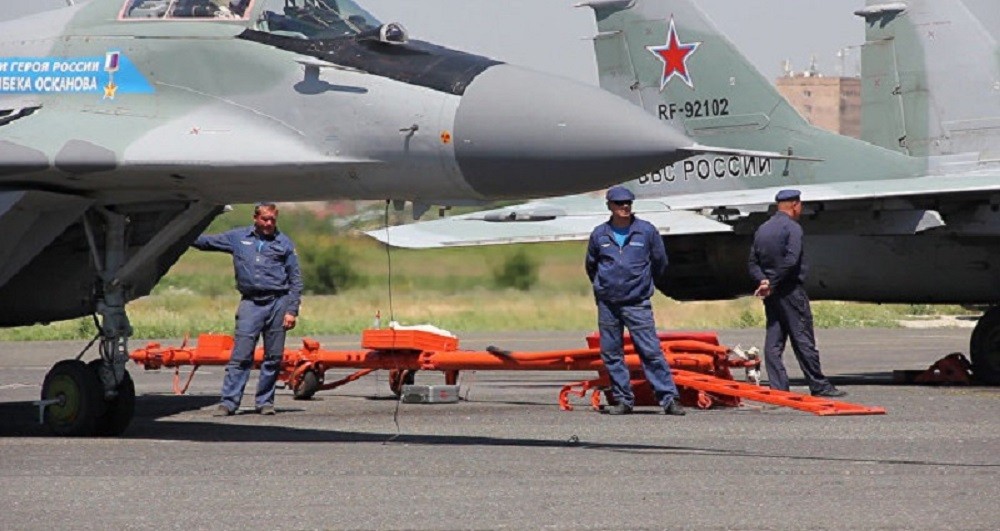
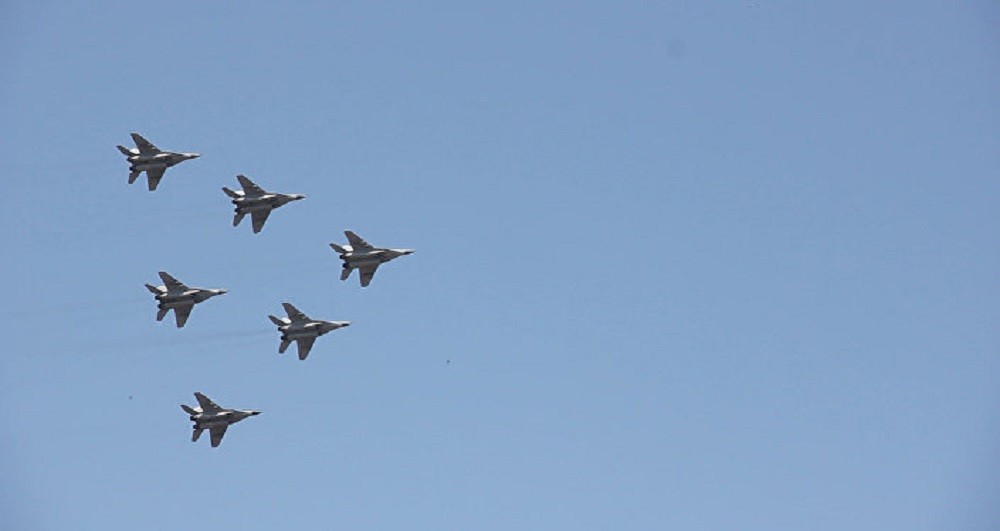
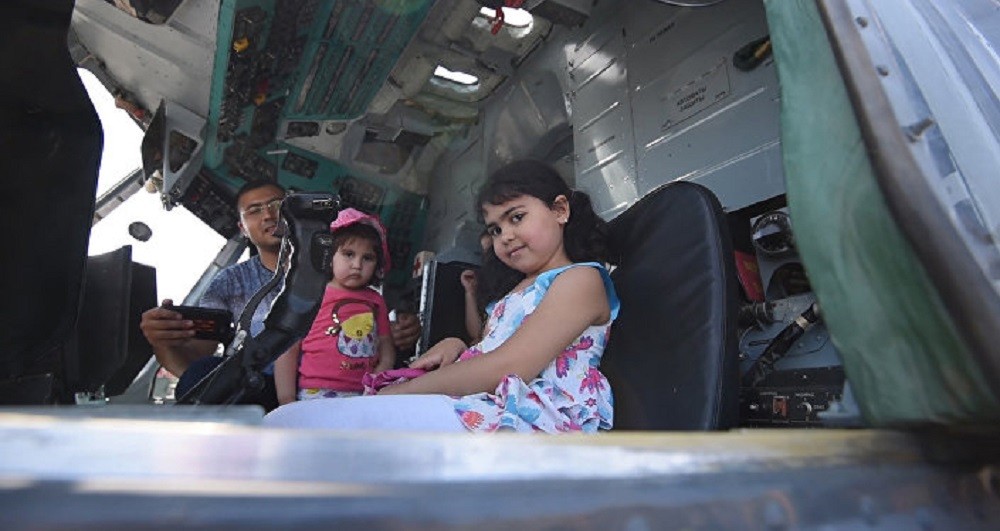

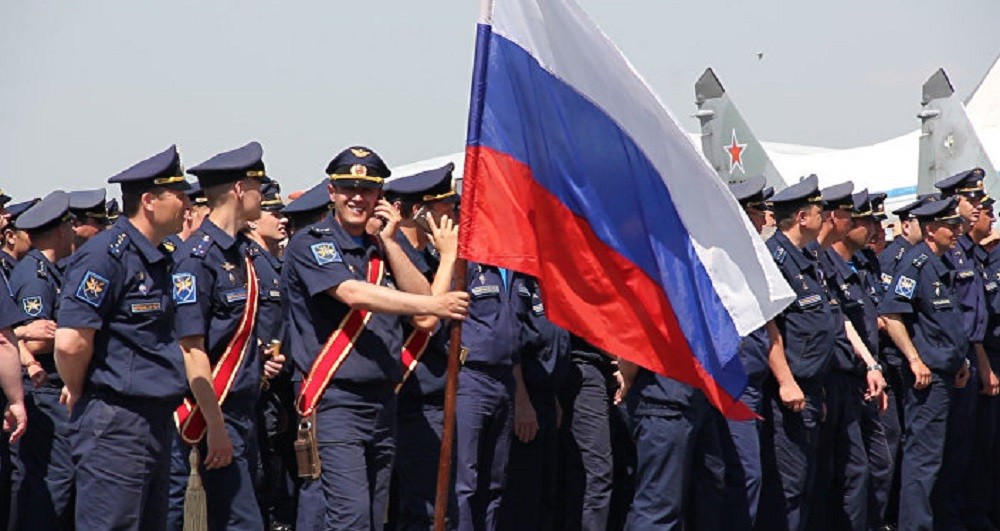
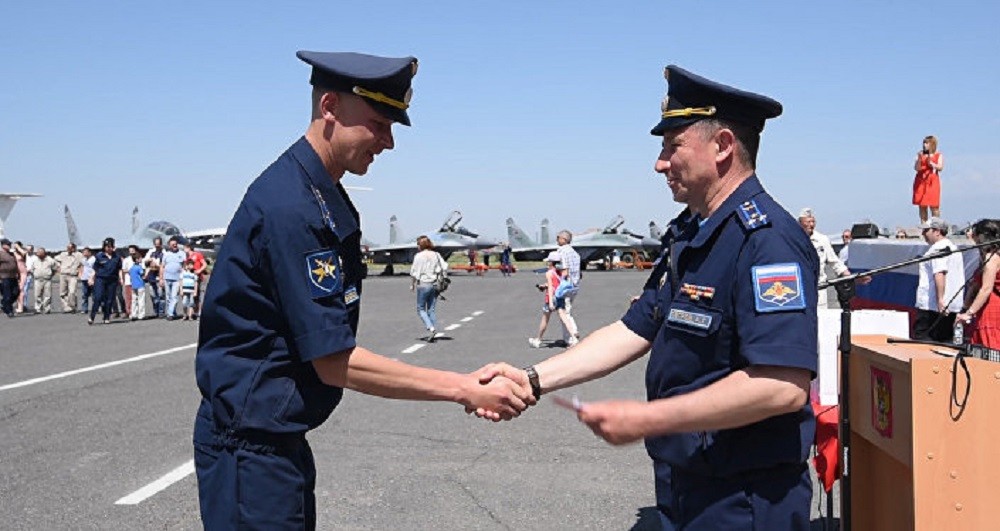

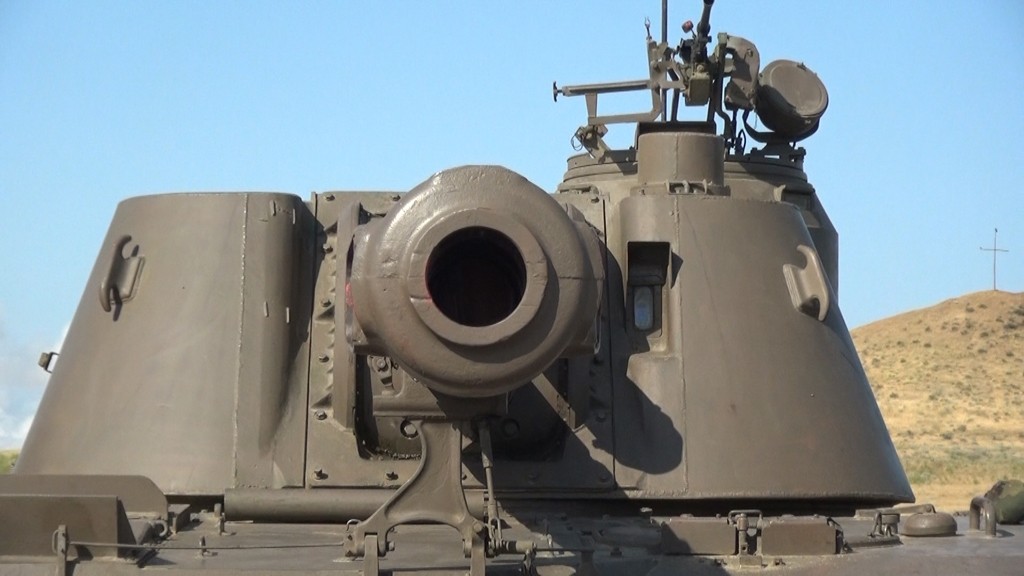
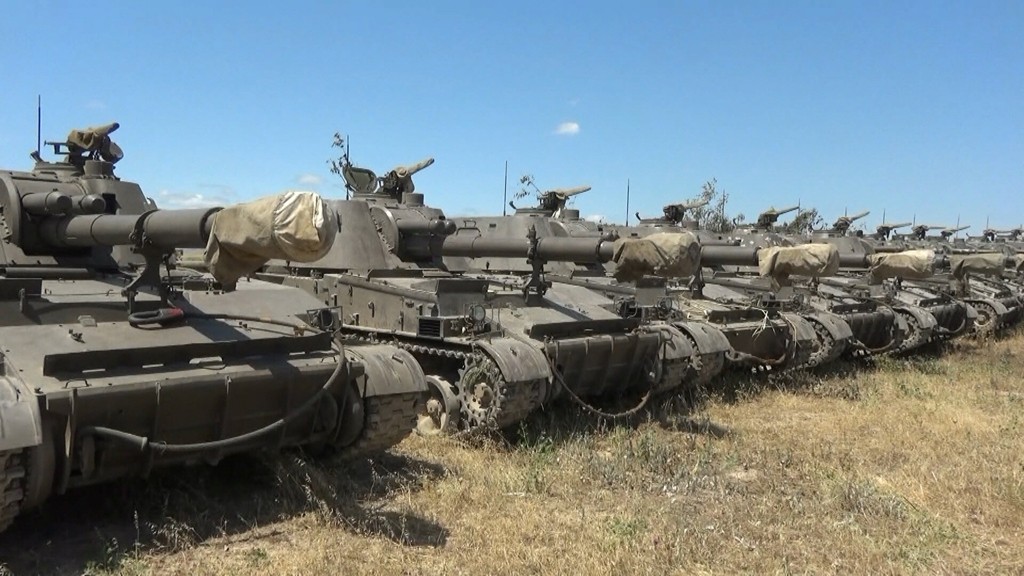
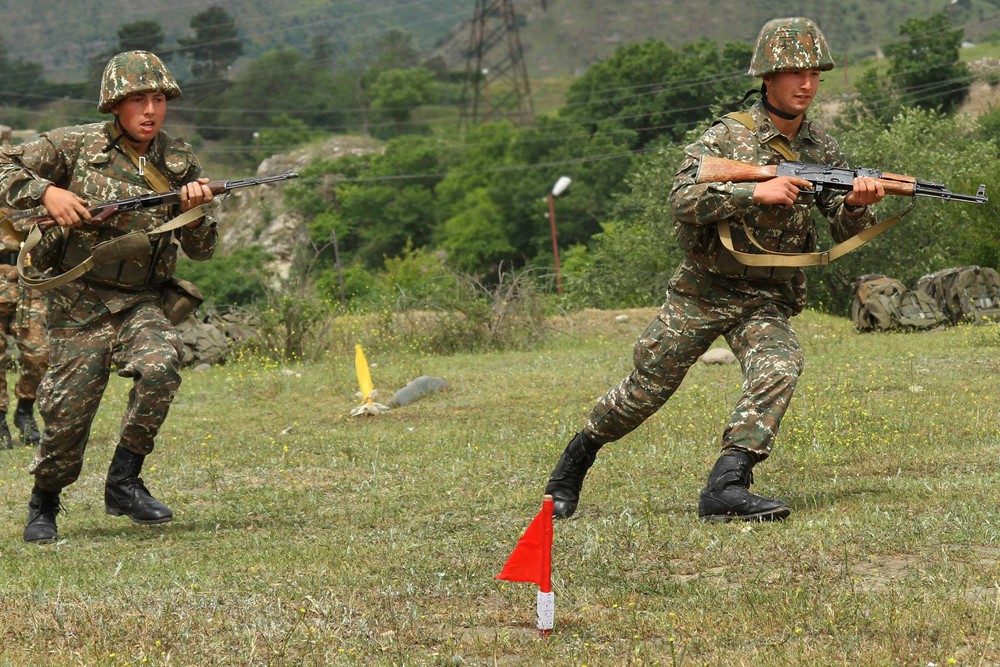
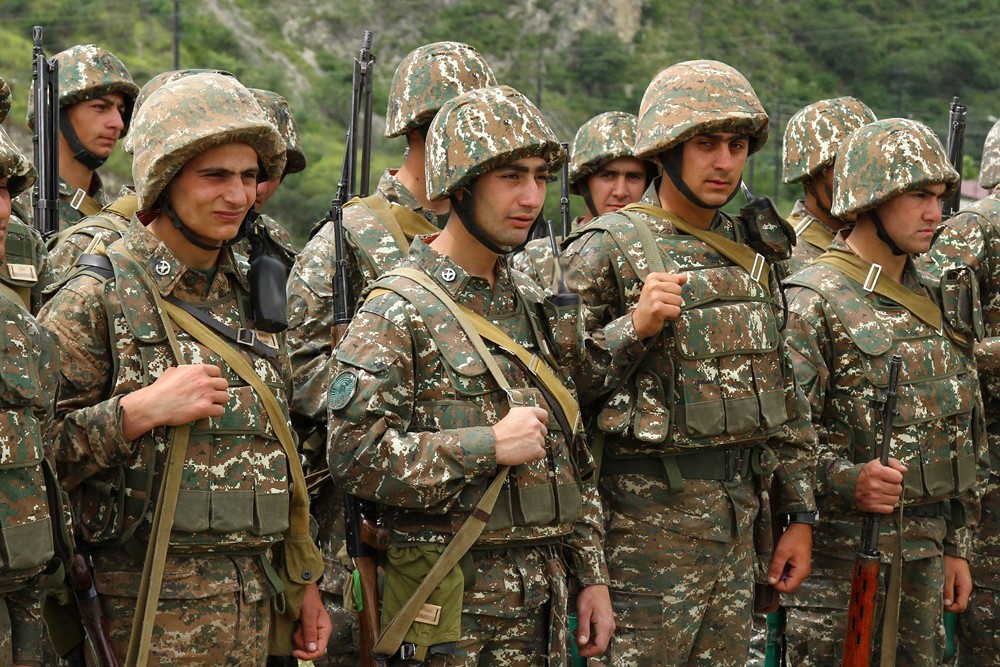
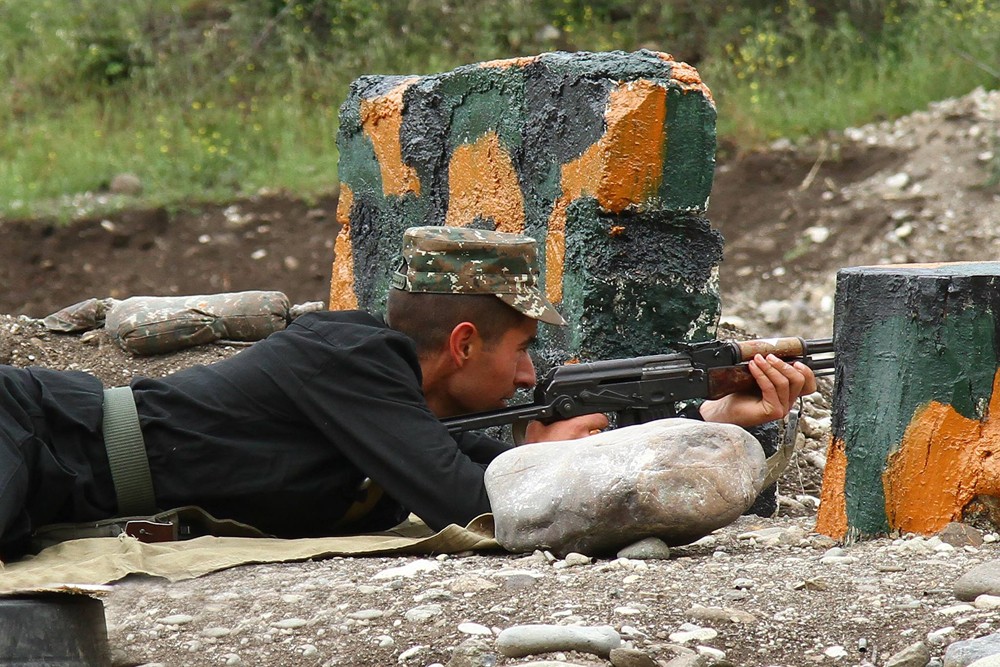
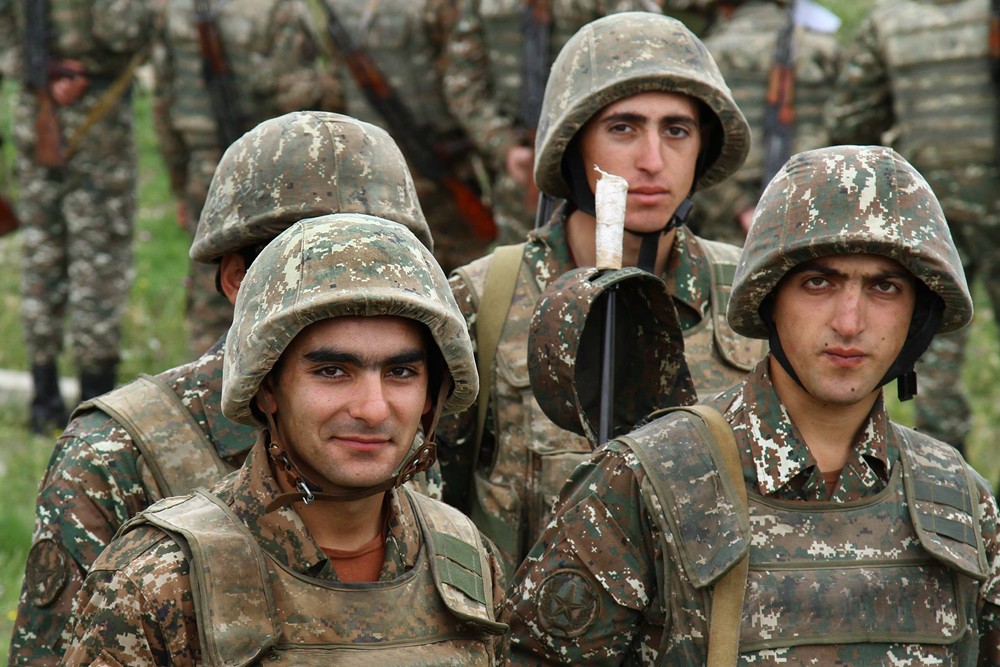
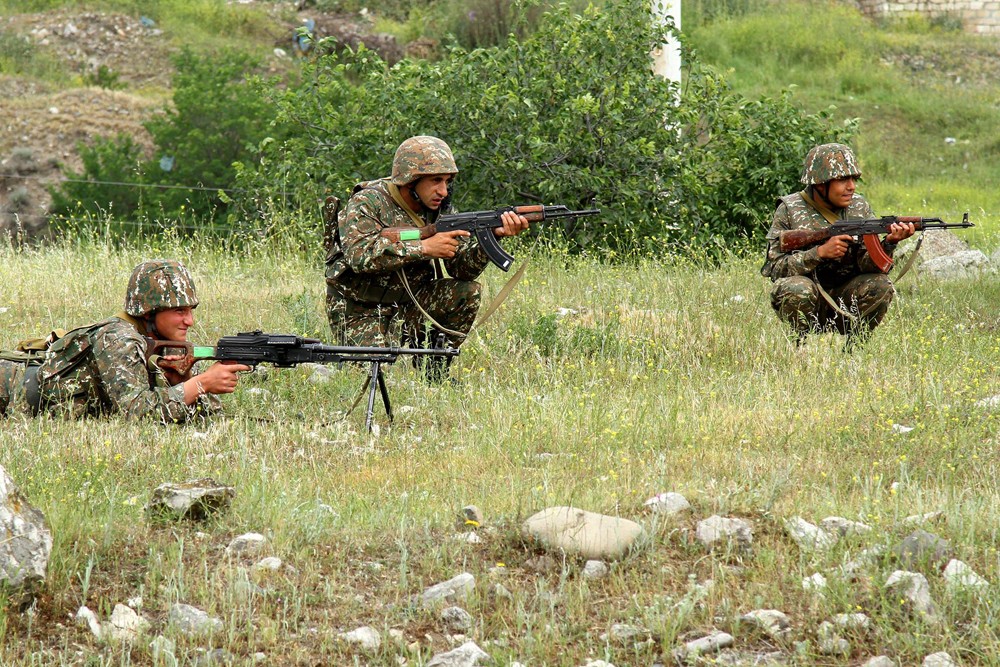
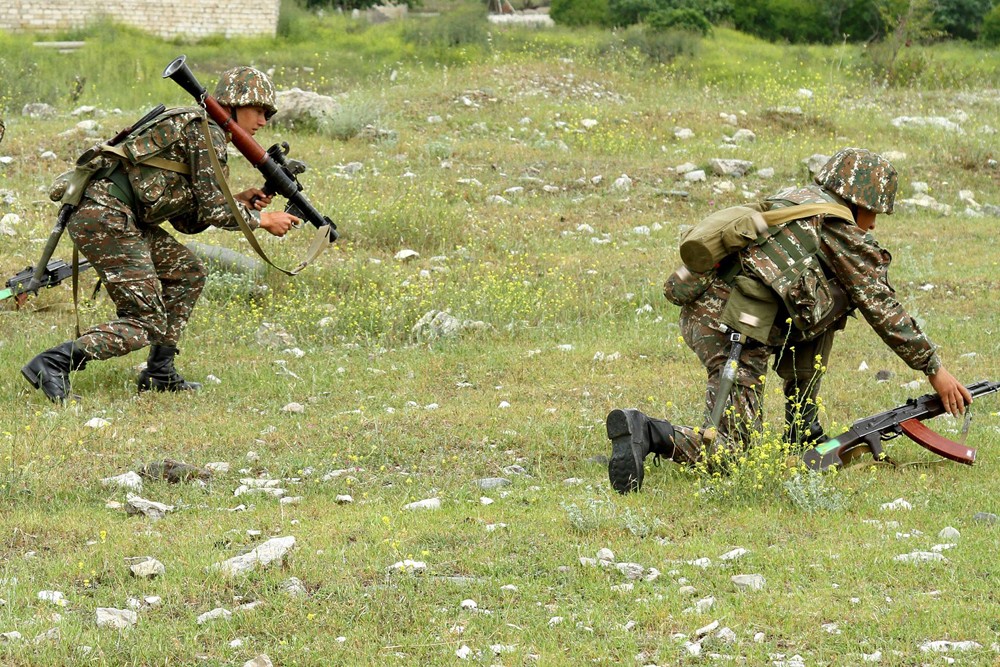
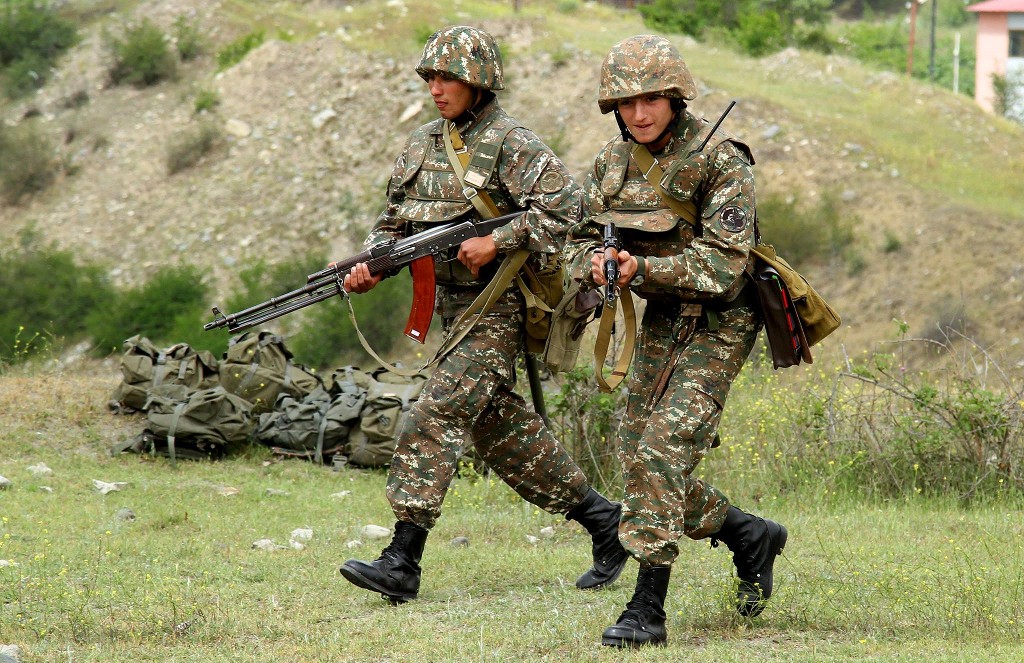
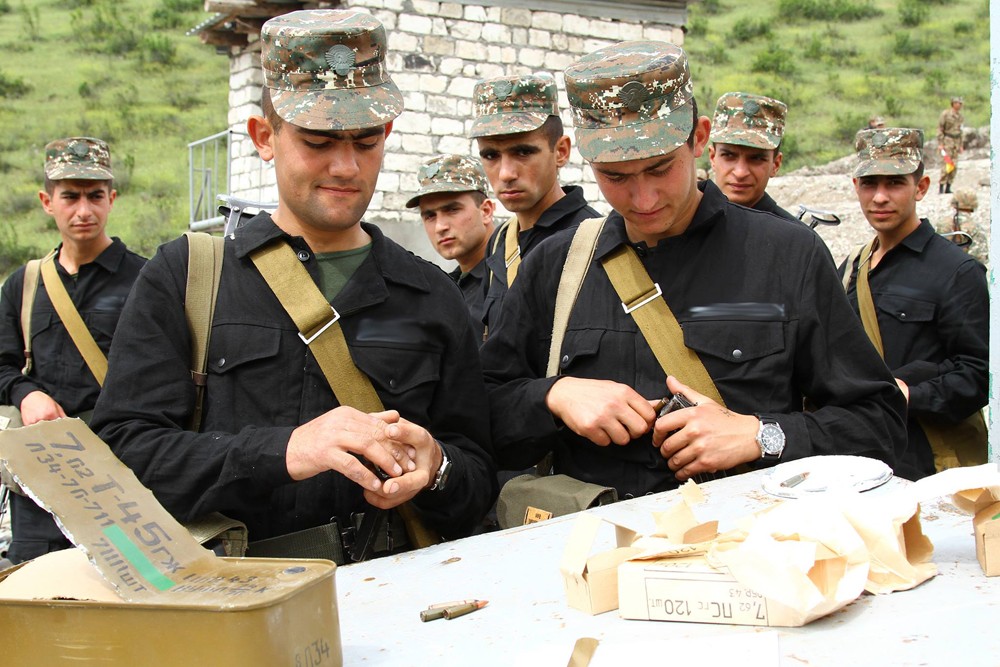
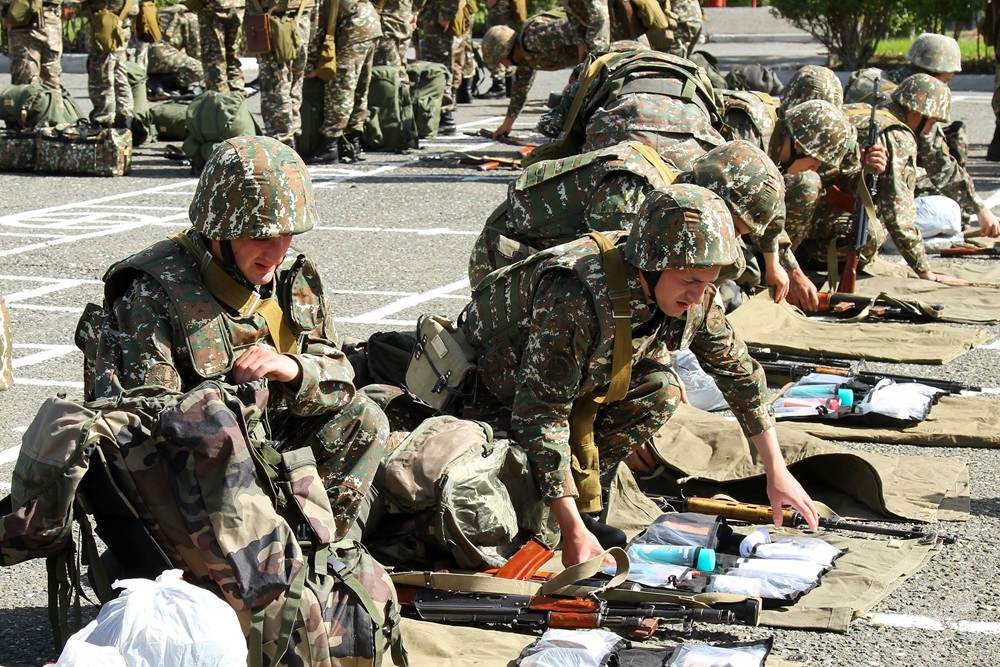
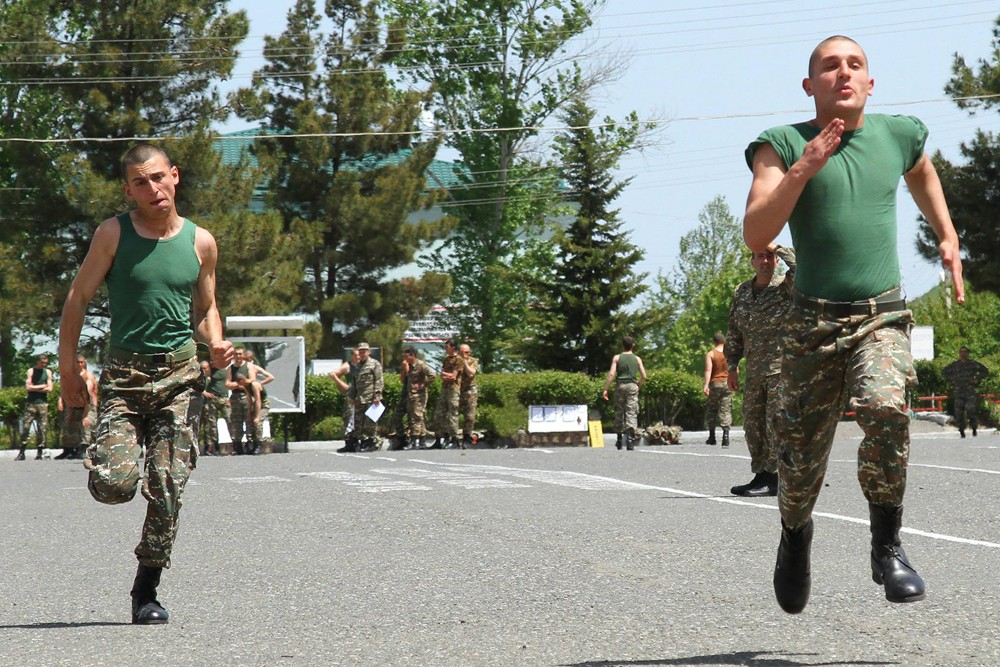
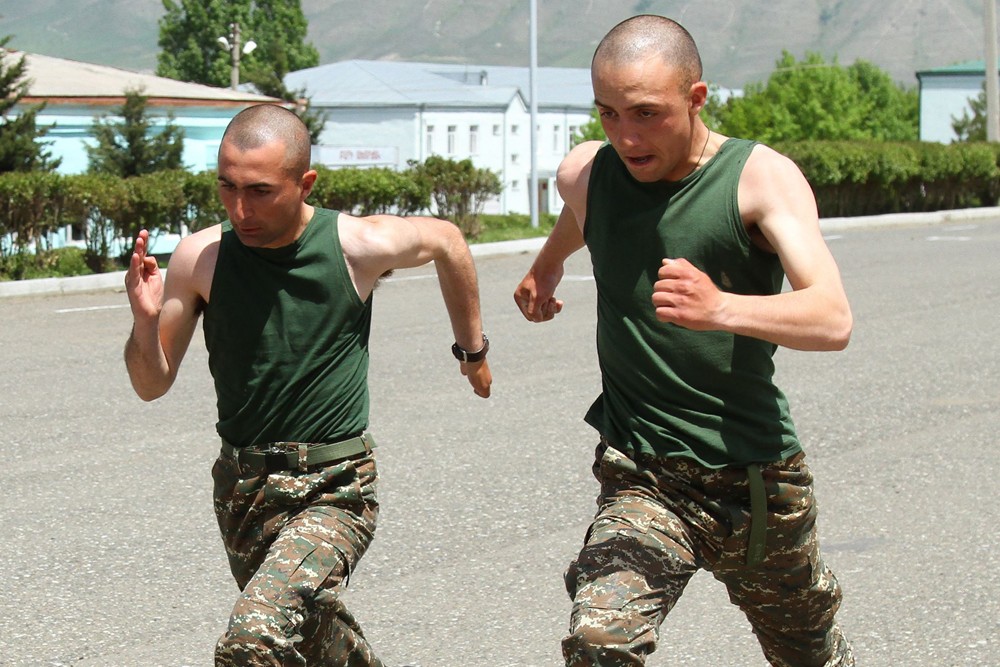
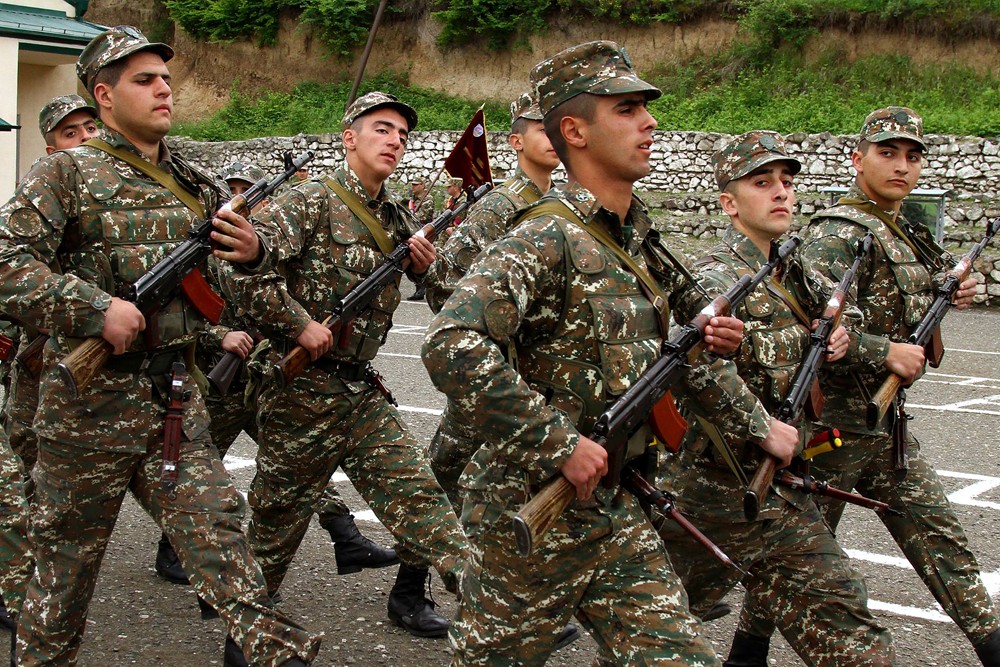
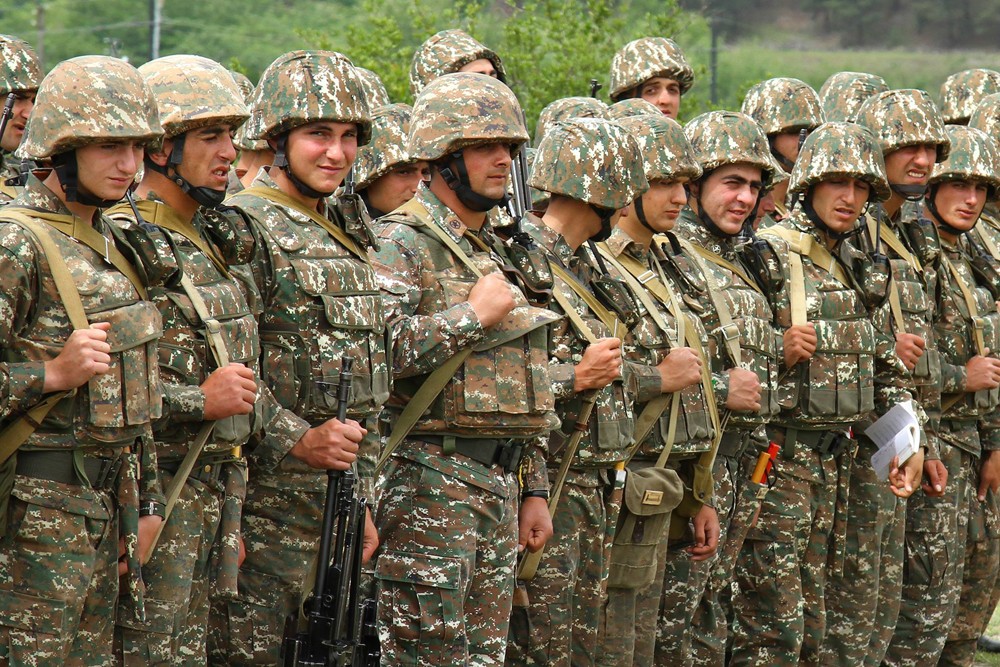
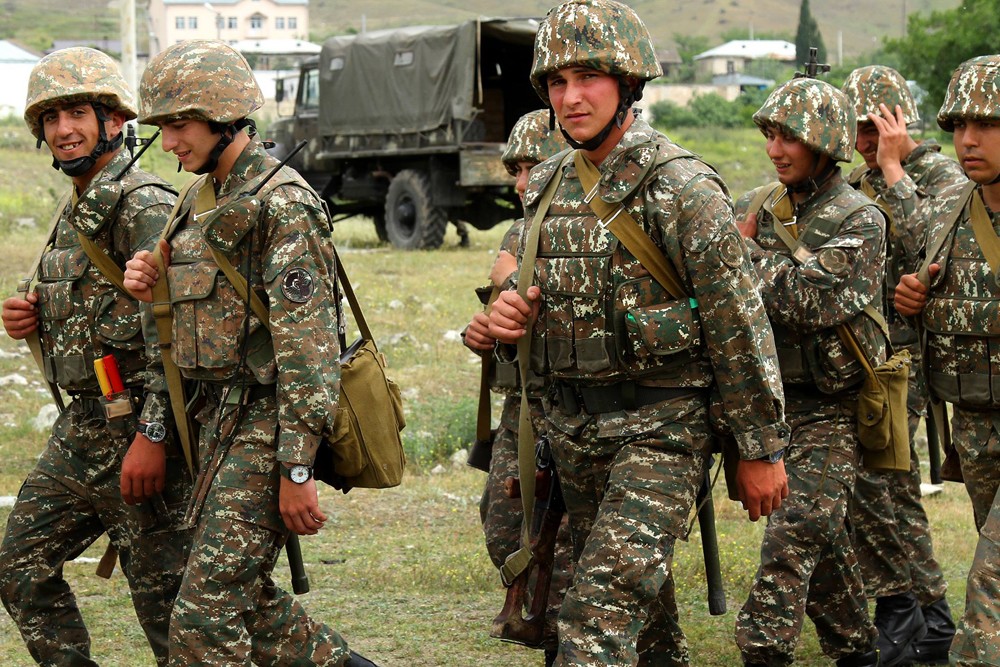
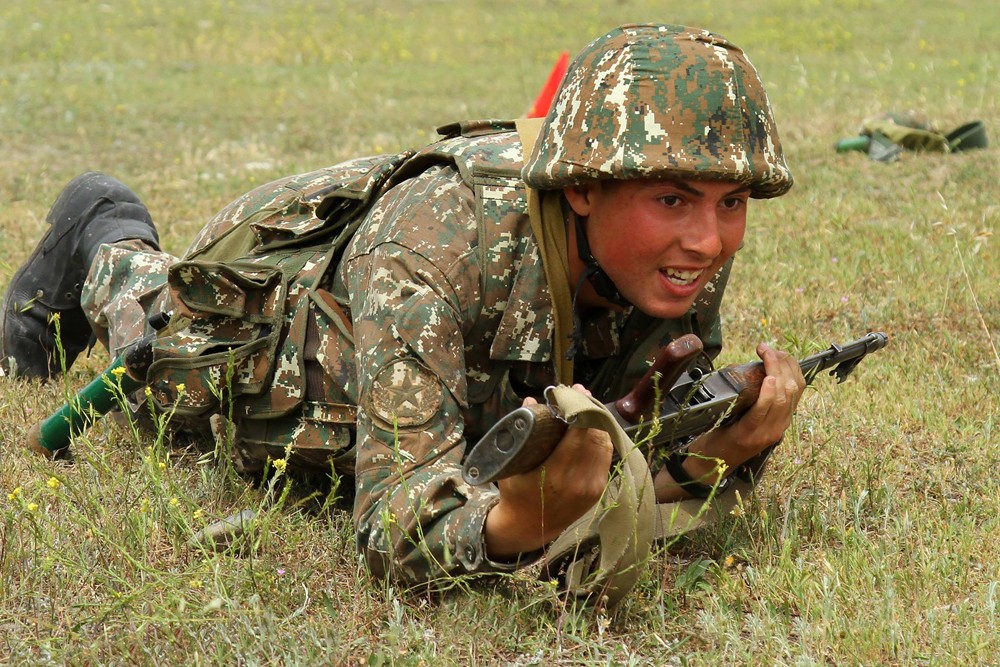
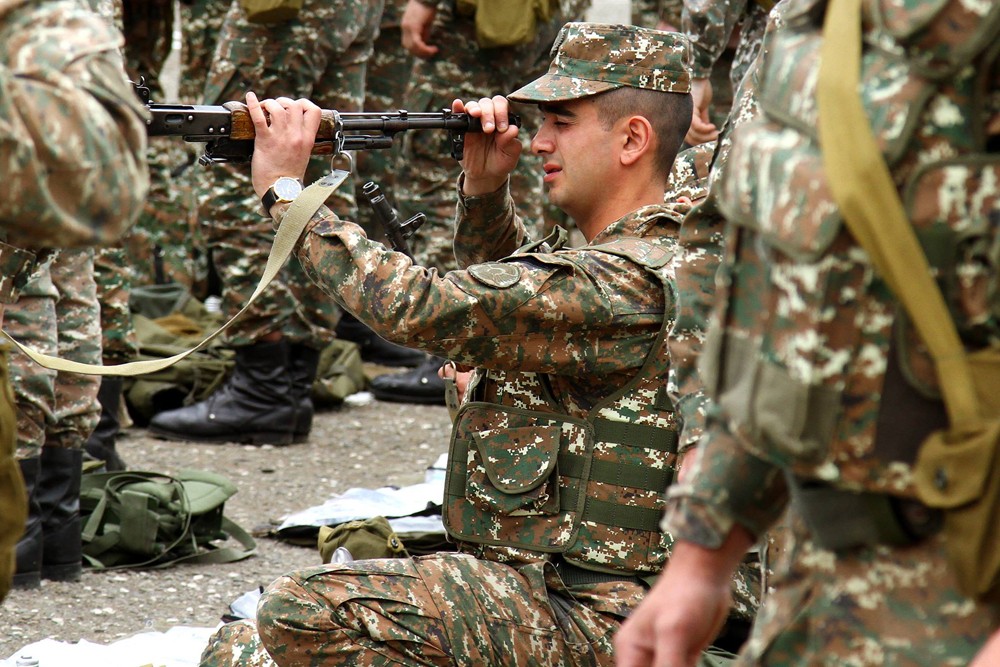
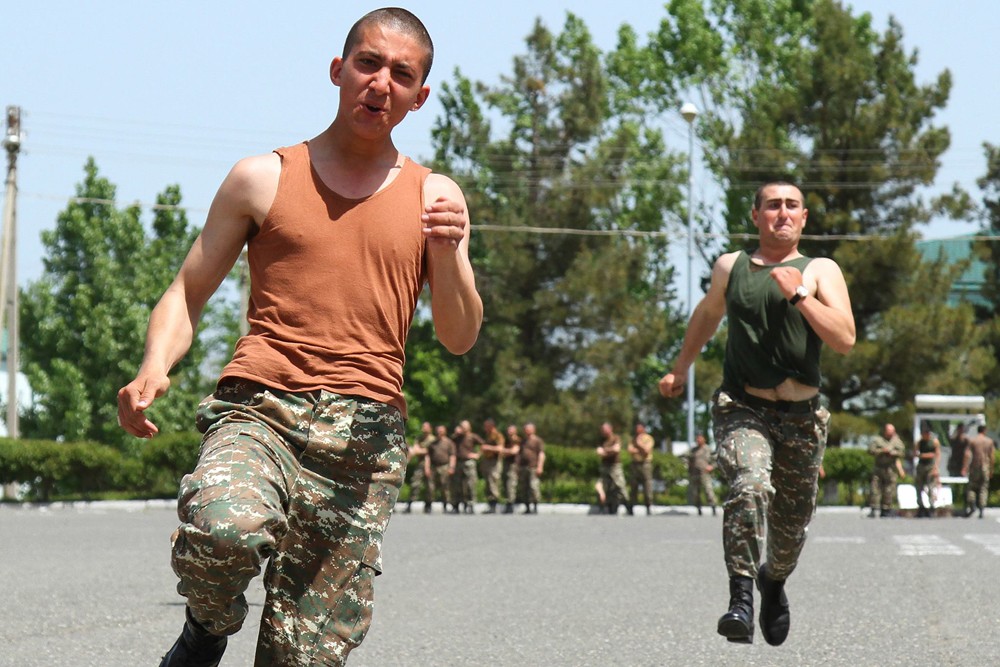
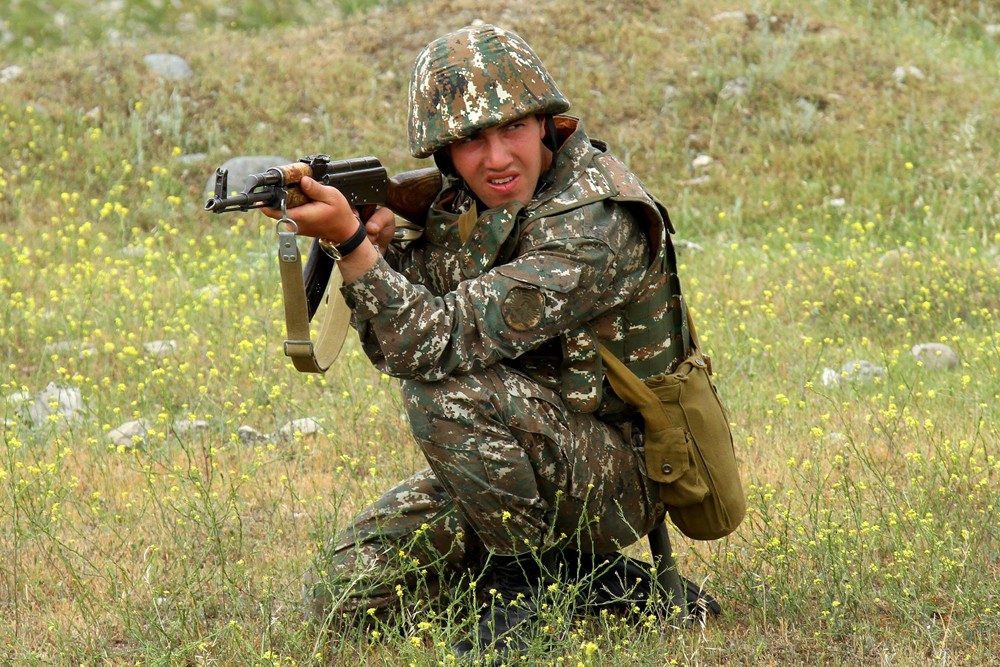
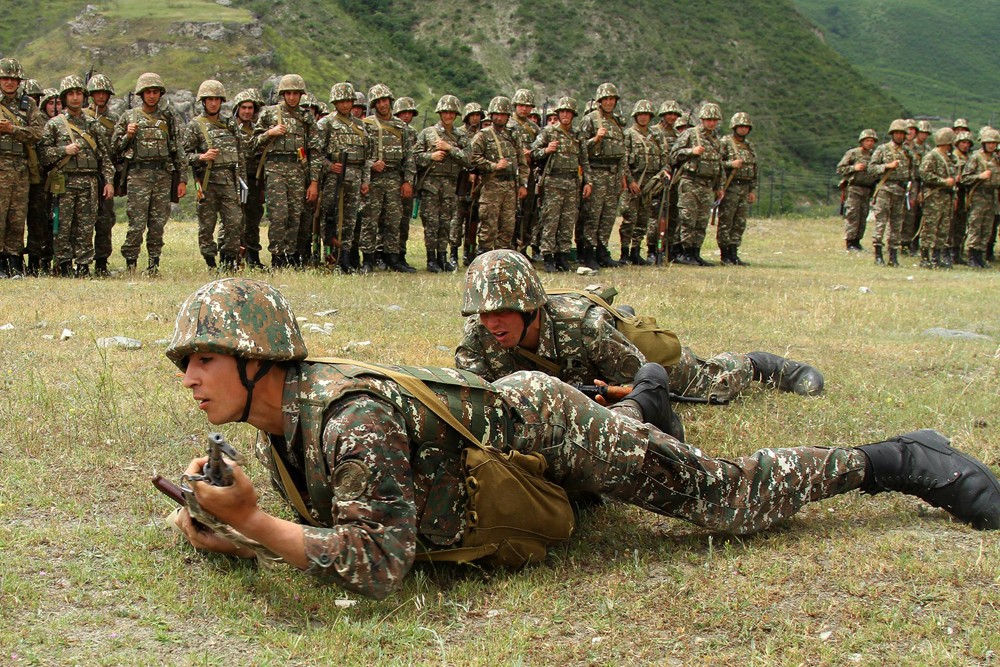
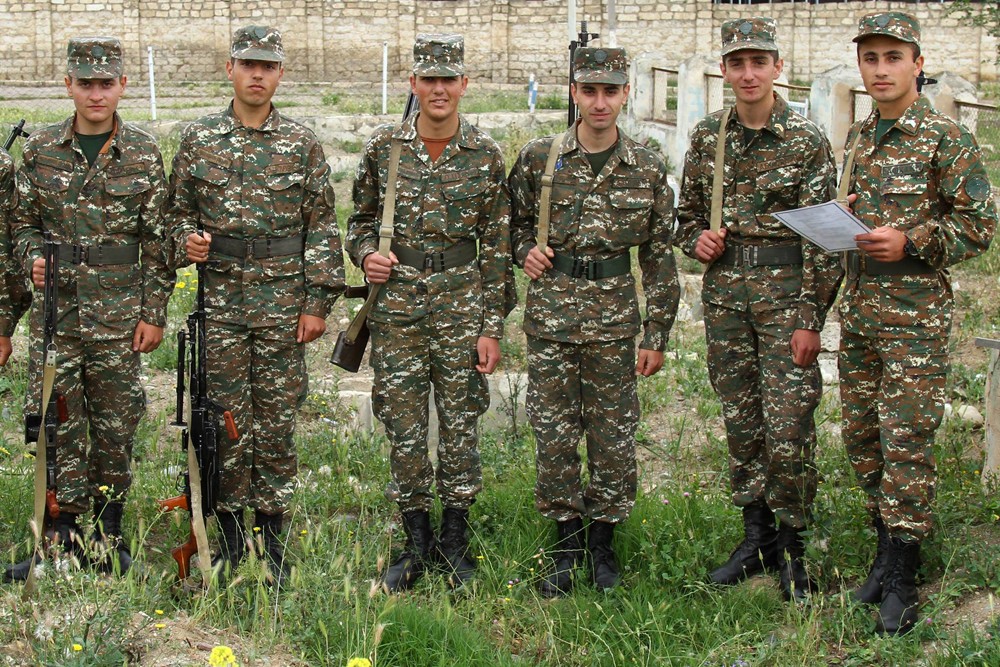
Comment